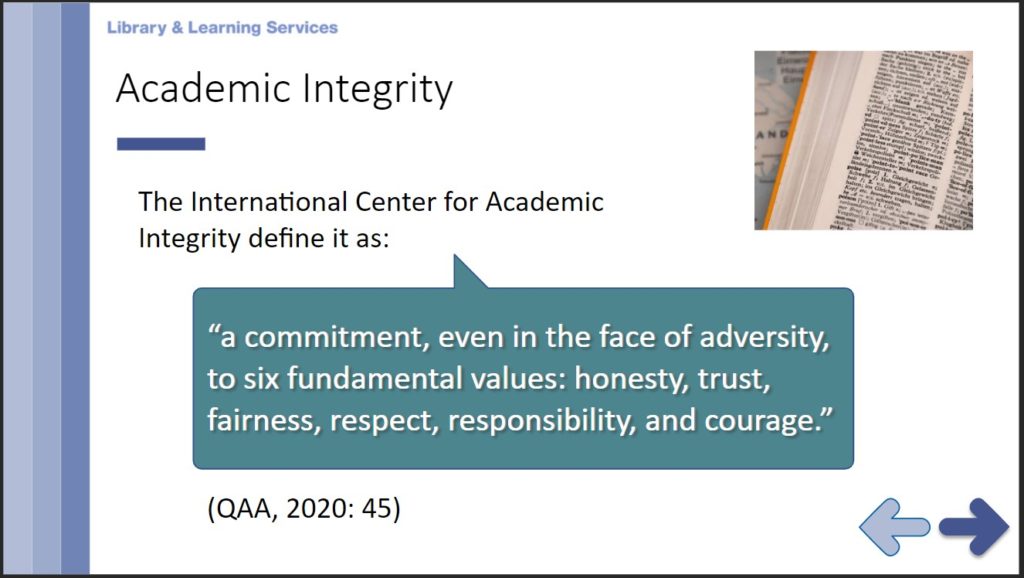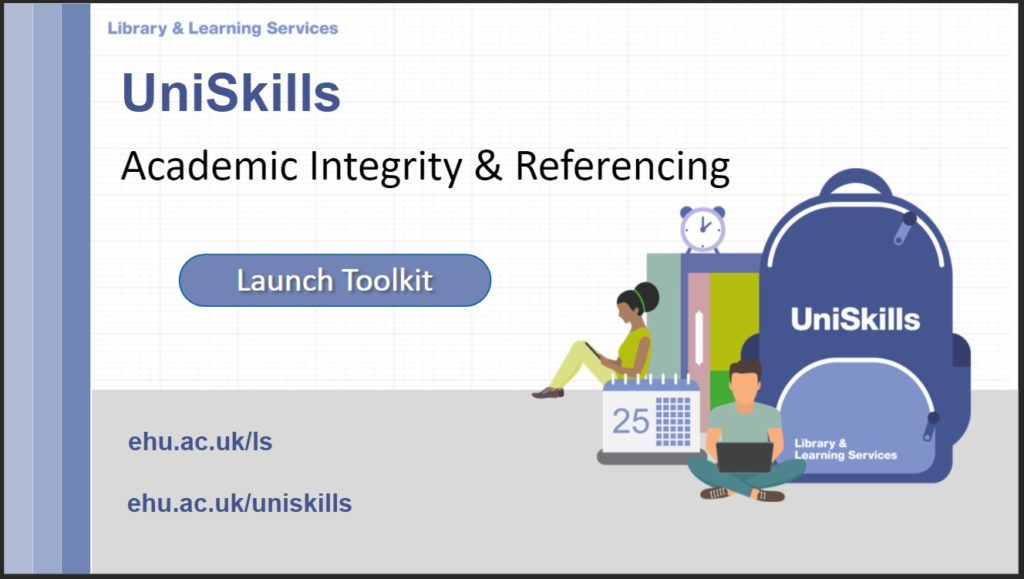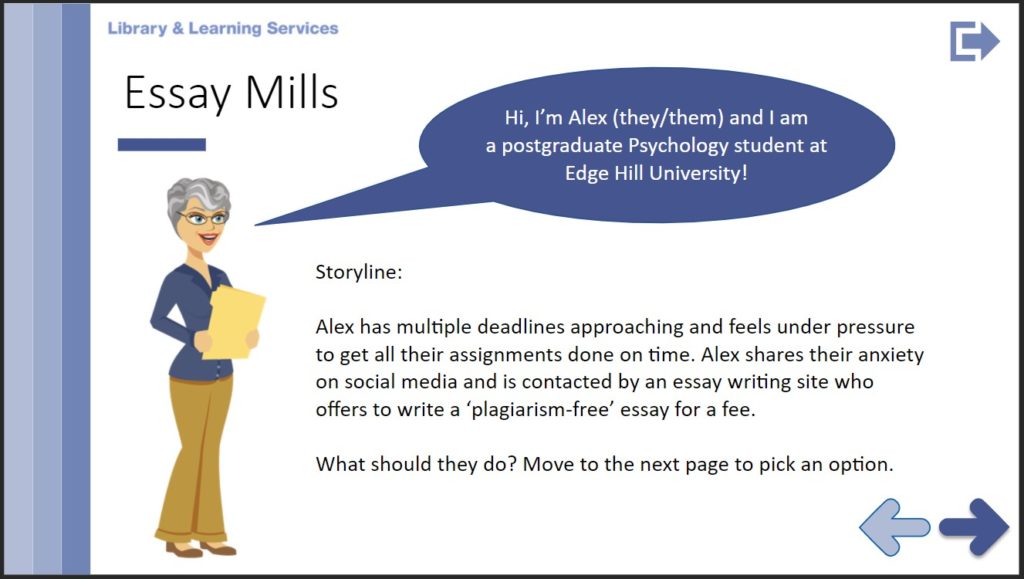As a student you will be reading a range of literature, some of it may be challenging, other pieces interesting, and occasionally you will read something so intriguing that it sends you off on a tangent, reading and researching an area that has grabbed your attention and drawn you in. That happened to me in 2015 when I was deep in postgraduate study, and an interest in that topic has stayed with me ever since, ultimately leading to the creation of a new academic resource to support Edge Hill University students and staff.
I have worked in a range of roles within the higher education sector for over 21 years, 19 of those here at Edge Hill University. Working closely with so many students across a range of diverse and thought-provoking subjects is fascinating, and always reminds me how much I love learning. That itch to study again is what prompted me to return to postgraduate study 15 years after my 1st degree. It was whilst researching a dissertation topic that I stumbled across an article detailing the prevalence of academic dishonesty in American university students, and I was shocked! This sent me down a rabbit-hole, researching and reading all thing to do with academic dishonesty, ethics in academia and academic integrity, and ultimately became the focus of my dissertation.
One of the key things I discovered was that academic integrity is a much broader concept than simply the avoidance of academic misconduct. While of course it is important to know what academic misconduct entails and how each university deals with it, it is arguably more important to recognise the benefits of honesty and integrity in higher education.

There are multiple reasons why integrity is important! As a student it enables you to be confident that your work is being assessed fairly and that your marks accurately reflect your ability. When you study at an institution that respects integrity you also know that your degree holds value.
You can demonstrate integrity as a student in a number of ways, such as, always referencing the work and ideas of others, ensuring that you are honest about your research findings, and admitting when you haven’t left yourself enough time to meet a deadline and seeking support!
My current role as an Academic Skills Advisor within the UniSkills team has given me to opportunity to combine that passion for academic integrity with the practical side of my job by designing and creating an interactive Academic Integrity & Referencing Toolkit which enables you to:
- Learn the difference between academic integrity and academic dishonesty
- Understand what plagiarism is (and how to avoid)
- Recognise why, when and how to reference
- Consider the differences between collusion and collaboration
Whilst on its own academic integrity as a topic might not necessarily sound all that exciting, once we understand how it links to why we reference, and see the benefits for the whole academic community, it becomes much more significant and relatable.

The Academic Integrity & Referencing Toolkit offers a range of interactive elements including videos, confidence sliders, clickable top tips, a referencing quiz, animations, extra information buttons, and even a selection of ‘pick your own adventure’ academic integrity storylines!
The referencing quiz presents 5 options alongside the original text and each time you decide whether the example is referenced correctly, or whether it is an example of plagiarism. You can take the quiz as many times as you like, and use the explanations of each answer to help develop your understanding of referencing.
The ‘pick your own adventure’ style scenarios offer you a chance to explore academically dishonest situations without committing the offence! Have you ever wondered what would happen if you were found to have plagiarised work, colluded, or bought work from an essay mill? By picking any of the 3 storylines in the Academic Integrity Scenarios section of the toolkit you can explore the outcomes and consequences for Lauren, Dinil and Alex*

* These scenarios are just examples of what could happen to an Edge Hill University student in these situations. In reality, each incident is investigated on a case-by-case basis.
The toolkit has been designed to offer useful hints and tips while exploring key topics such as referencing, (including quoting, paraphrasing and when to cite), explaining the difference between collaboration and collusion, and identifying a few of the behaviours that are recognised as academic dishonesty. Importantly, it also introduces the topic of Academic Integrity and highlights why it is so important for all member of the academic community to act with integrity.
There is plenty of information and tops tips packed into this new and exciting interactive resource, which can be found under ‘Academic Integrity’ in the Referencing section of the UniSkills webpages. Why not check it out now and see if you can discover something new?
For anyone keen to learn more about this fascinating topic, here are a few resources to get you started:
INTERNATIONAL CENTER FOR ACADEMIC INTEGRITY [ICAI], 2021. The Fundamental Values of Academic Integrity. 3rd ed. Available from: https://academicintegrity.org/images/pdfs/20019_ICAI-Fundamental-Values_R12.pdf [Accessed 22 November 2021].
QAA, 2020. Contracting to Cheat in Higher Education: How to Address Essay Mills and Contract Cheating [online]. Available from: https://www.qaa.ac.uk/about-us/what-we-do/academic-integrity# [Accessed 22 November 2021].
SUTHERLAND-SMITH, W. and DULLAGHAN, K., 2019. You don’t always get what you pay for: User experiences of engaging with contract cheating sites. Assessment and Evaluation in Higher Education. 44 (8), pp. 1148-1162. Available from: https://www-tandfonline-com.edgehill.idm.oclc.org/doi/full/10.1080/02602938.2019.1576028 [Accessed 22 November 2021].
By Helen Briscoe, Academic Skills Advisor – Student Engagement Team
